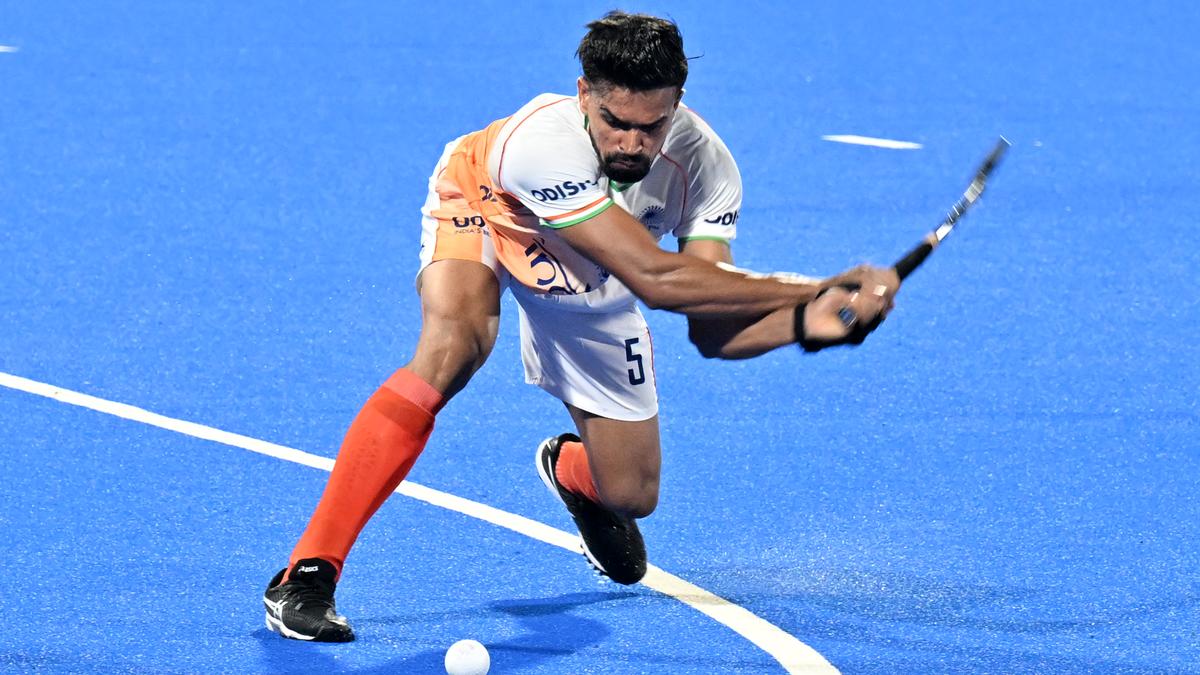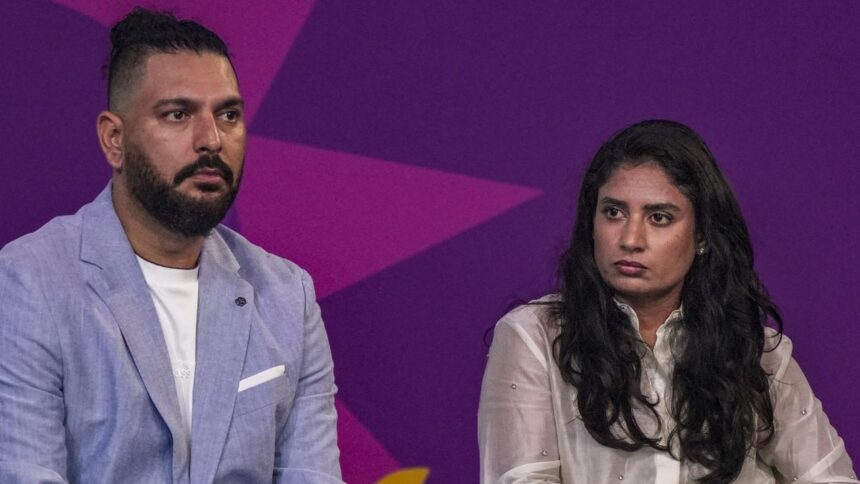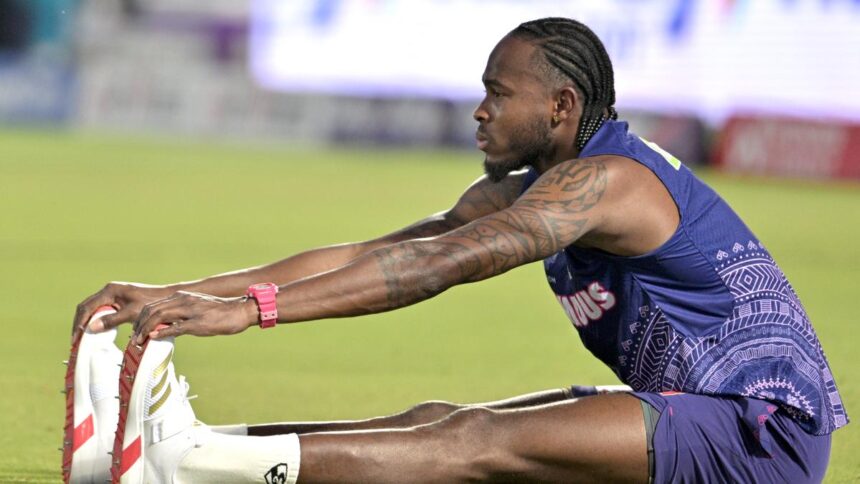
Abhishek was one of the stars of India’s Asia Cup triumph.
| Photo Credit: R. V. MOORTHY
A title was expected, a title was won. But the Indian men’s Asia Cup triumph at the Rajgir Sports Complex on Sunday night was not as smooth as most people would have assumed. What it was, though, was a little of everything — nervousness, patience, adaptability and, at times, perfection.
As the highest ranked side in the competition and the only Asian team that regularly plays at the top level in world hockey, India came into the competition as favourites, purely on the basis of rankings. But rankings don’t matter on the field of play; it’s performance that counts. And India was coming in on the back of some ordinary performances over the past few months including its longest stretch of losses ever — seven games — in the FIH Pro League followed by an ordinary tour of Australia.
With all this and a World Cup spot at stake, it was not a surprise that the Indians started tentatively. A hard-fought 4-3 win against China, who has been impressive in recent times and is getting really good at a rapid pace, in the opening game was peppered with defensive loopholes and erratic attacks. Another similarly nervy performance against Japan resulted in another narrow 3-2 win although there was a gradually increasing semblance of control. Playing both matches at the worst time of the day — 3 pm in hot, humid conditions that felt like 45 degrees and had players guzzling up to four litres of water through the match and losing as much as 3kg body weight — did not help.
The Kazakhstan match afforded India a chance to regroup, bring its structure back, recover both confidence and momentum and try out new combinations and tactics to top the pool ahead of the Super 4s. Defending champion Korea, who had had a more contrasting route in the other group, was prepared for India’s firepower, cutting down its chances and holding the host to its only draw of the tournament. And then came the grudge match against China.
The two teams’ recent matches have been close and with an army of top-level coaches in its corner, China hoped to run India close. But the India everyone expected to turn up at the beginning of the tournament finally decided to make an appearance four matches in. Free-flowing and sure of themselves, the Indians did not afford China even a peep at their goal. The 7-0 dismantling was the top-ranked side finally asserting its dominance and it’s become amply clear over the last few years that this Indian team, once it’s found its groove, can become almost unstoppable. This time, Malaysia in the penultimate game and Korea again in the final were at the receiving end.
India’s combination is built on individual brilliance tempered with the knowledge that the team comes first. The seven games through the Asia Cup proved that the players can adapt and control their flamboyance when needed. Player of the tournament Abhishek and Sukhjeet, guilty on more than one occasion early on, became restrained and, in the process, more dangerous. Manpreet proved age was just a number. Sumit and Vivek Sagar Prasad, the tireless workhorses in the middle who often slip under the radar with unassuming personalities, proved they were as indispensable to India’s scoring as the scorers themselves.
Penalty corners and goalkeeping remain a concern, though. Harmanpreet remains lethal when in form but his conversion rates continue to be middling and Jugraj continues to be inconsistent. Krishan Pathak’s extended poor run has continued and the senior pro would be hoping to shake off both mental and physical rust to regain form.
The title would do the players a world of good. The shaken confidence would be back, as would be the belief that they are and deserve to be the best in Asia. It would also give the team a long rope to prepare for a hectic but crucial 2026. Most importantly, it would have given coach Craig Fulton enough insights into what he needs to do to challenge the big boys of Europe while keeping the hegemony of Asia intact.
Published – September 08, 2025 07:31 pm IST






















